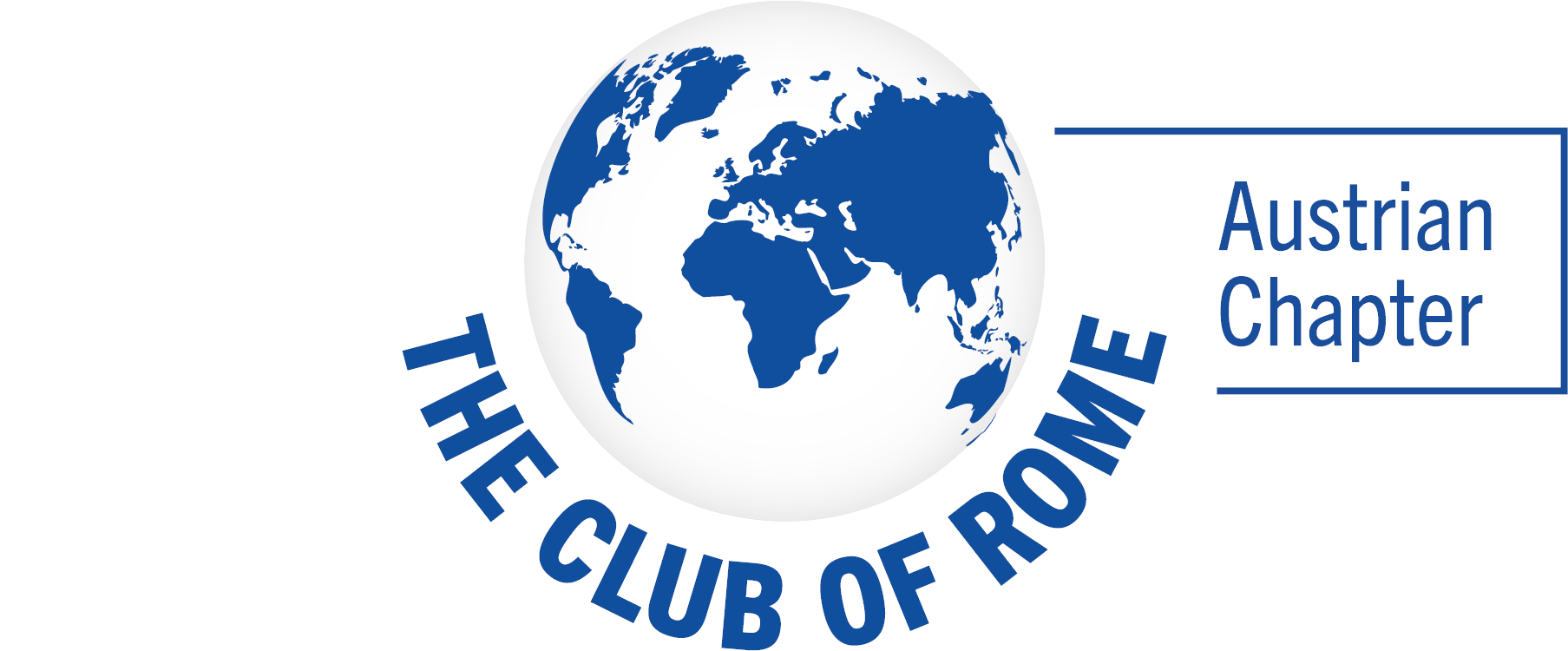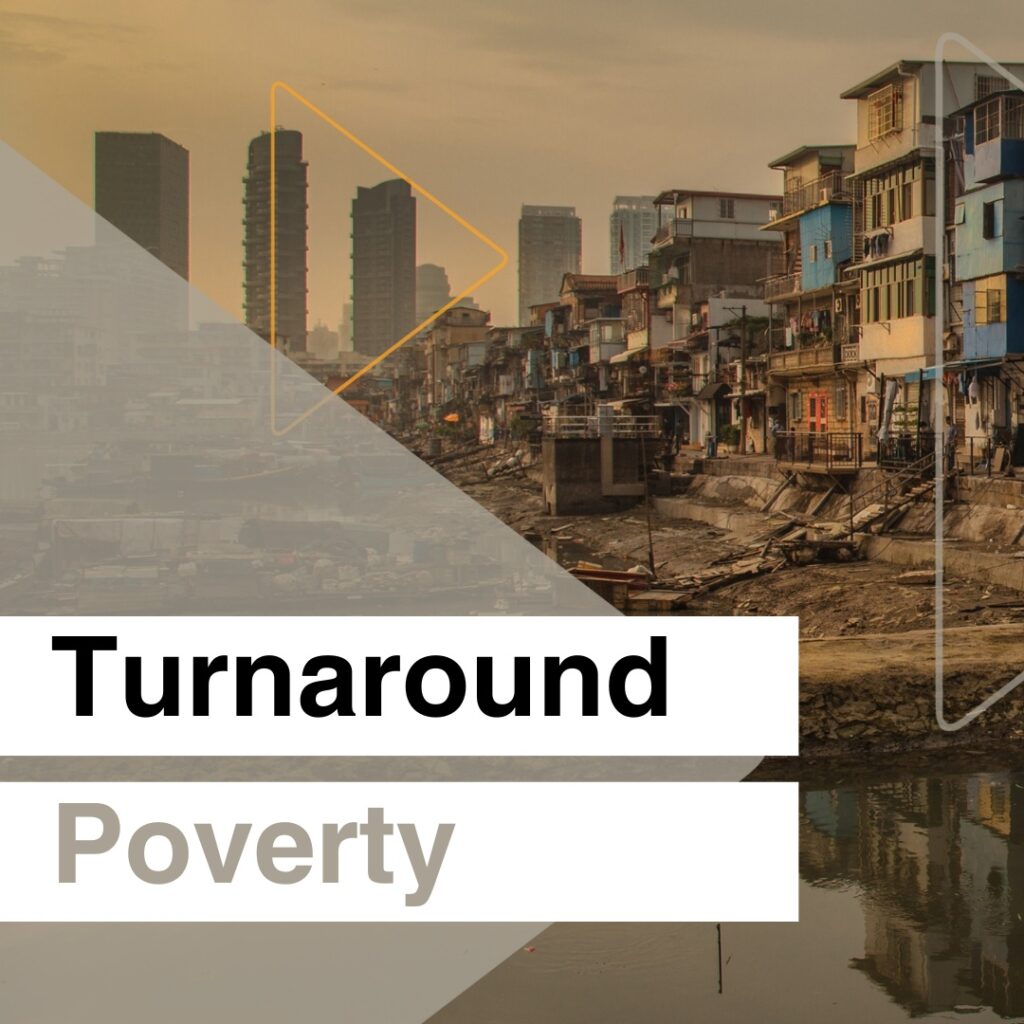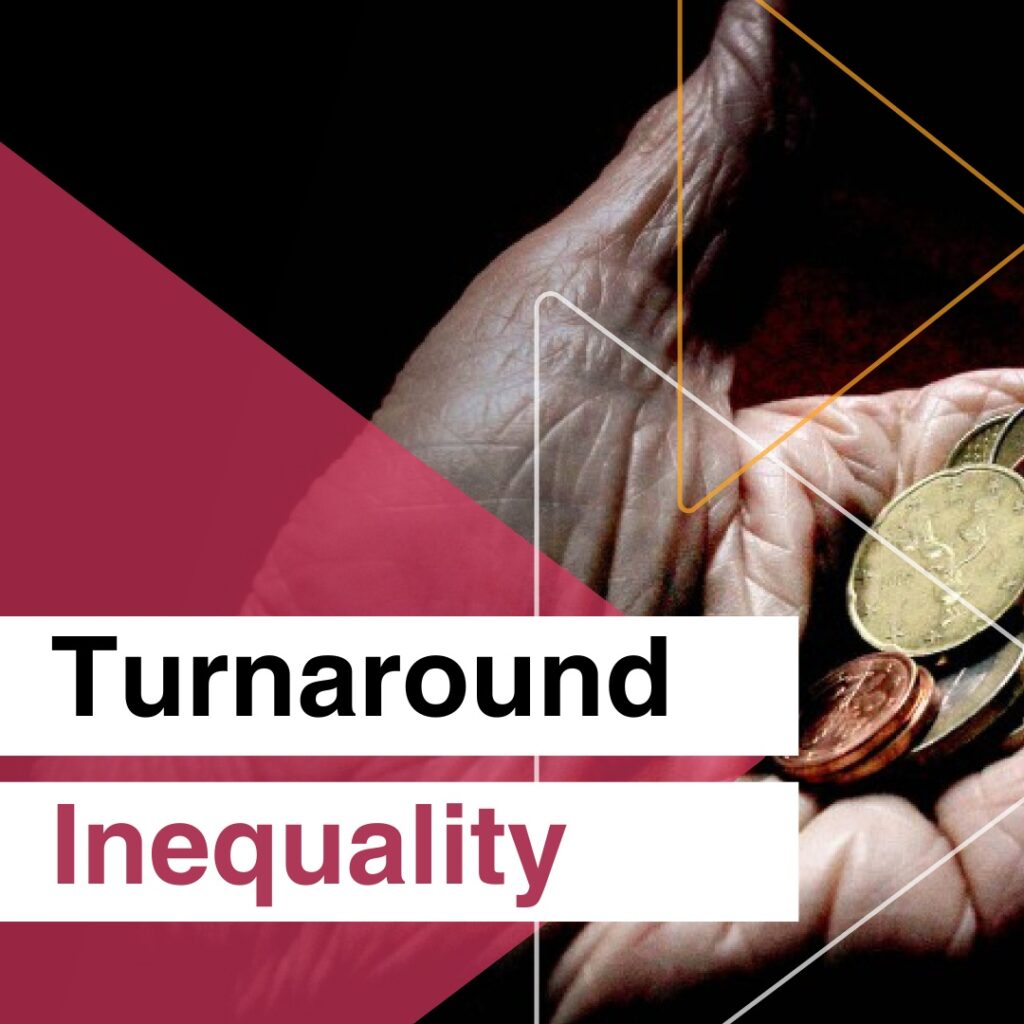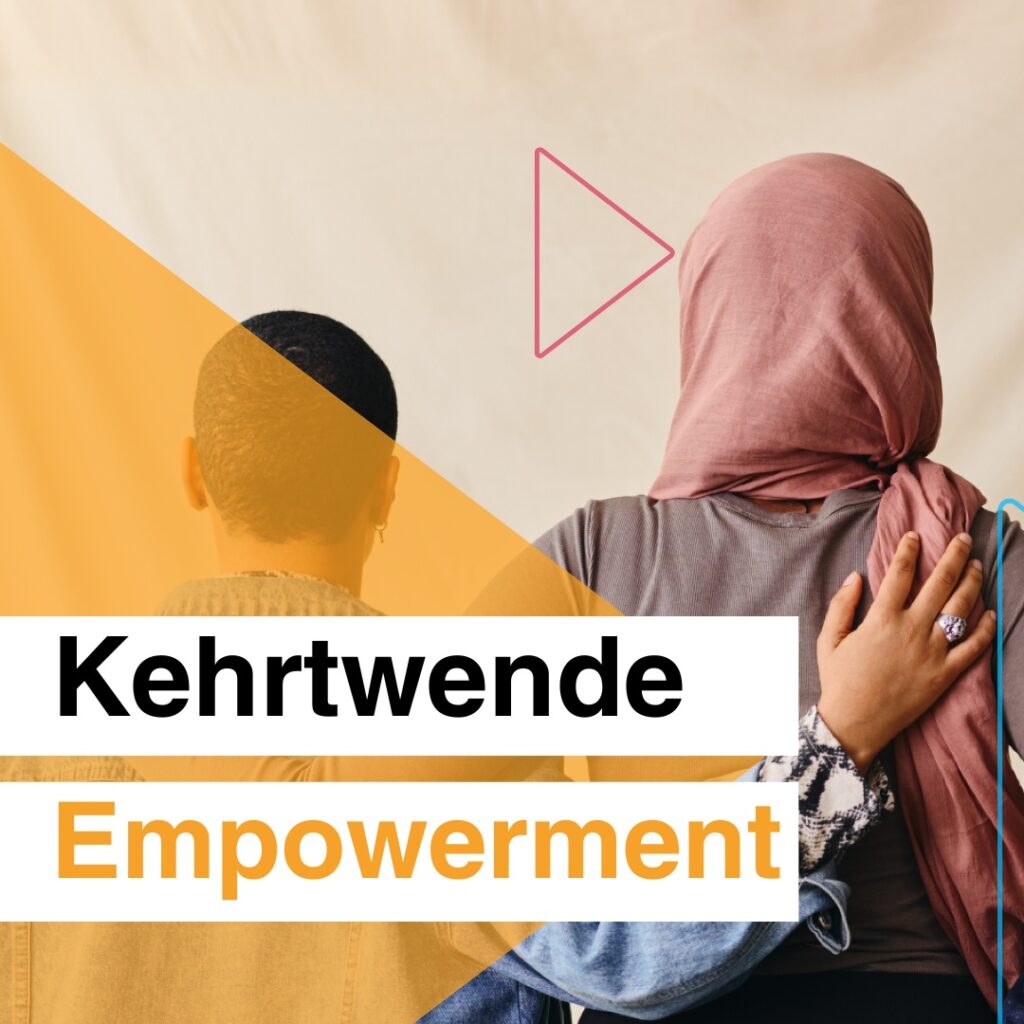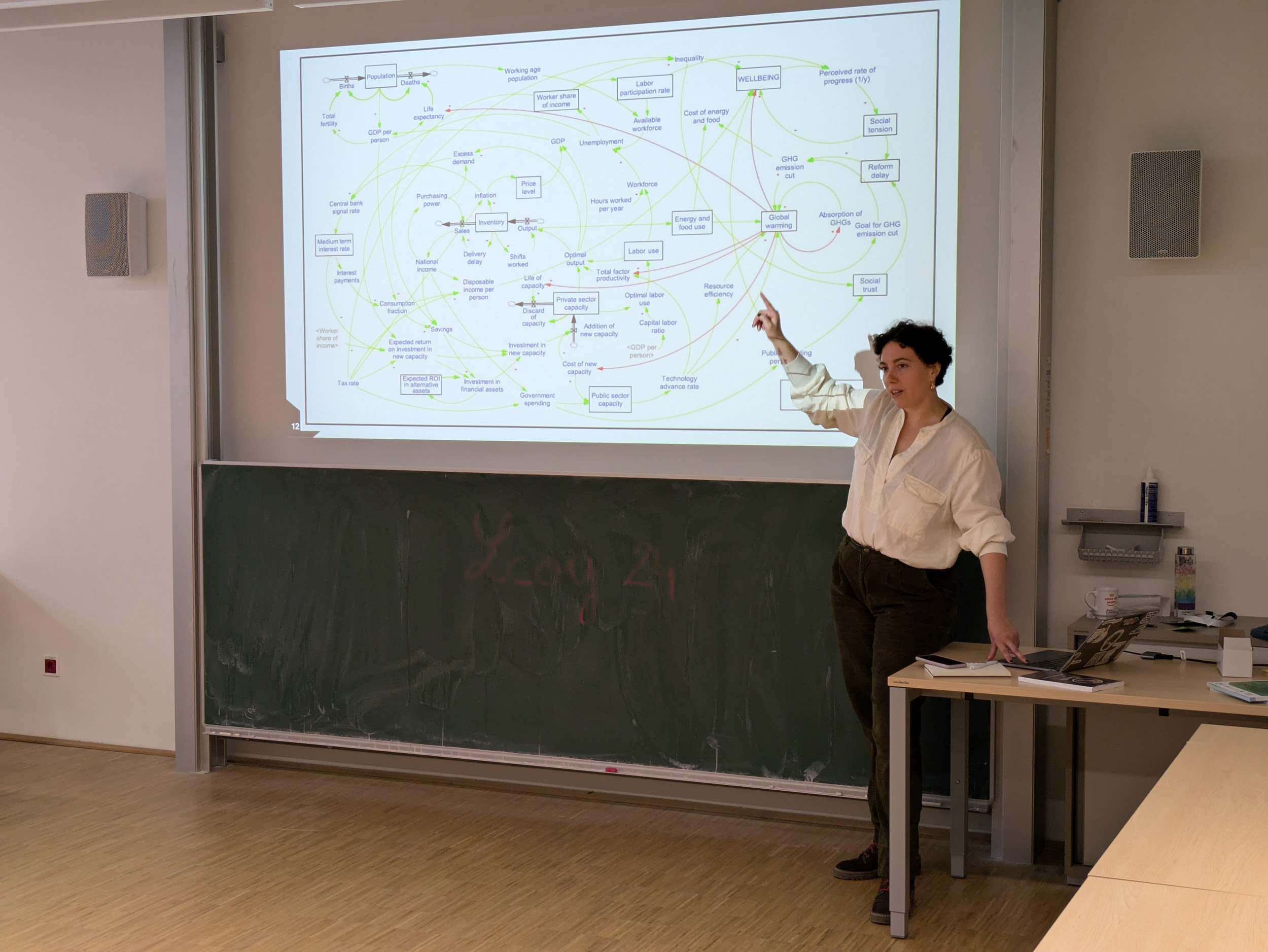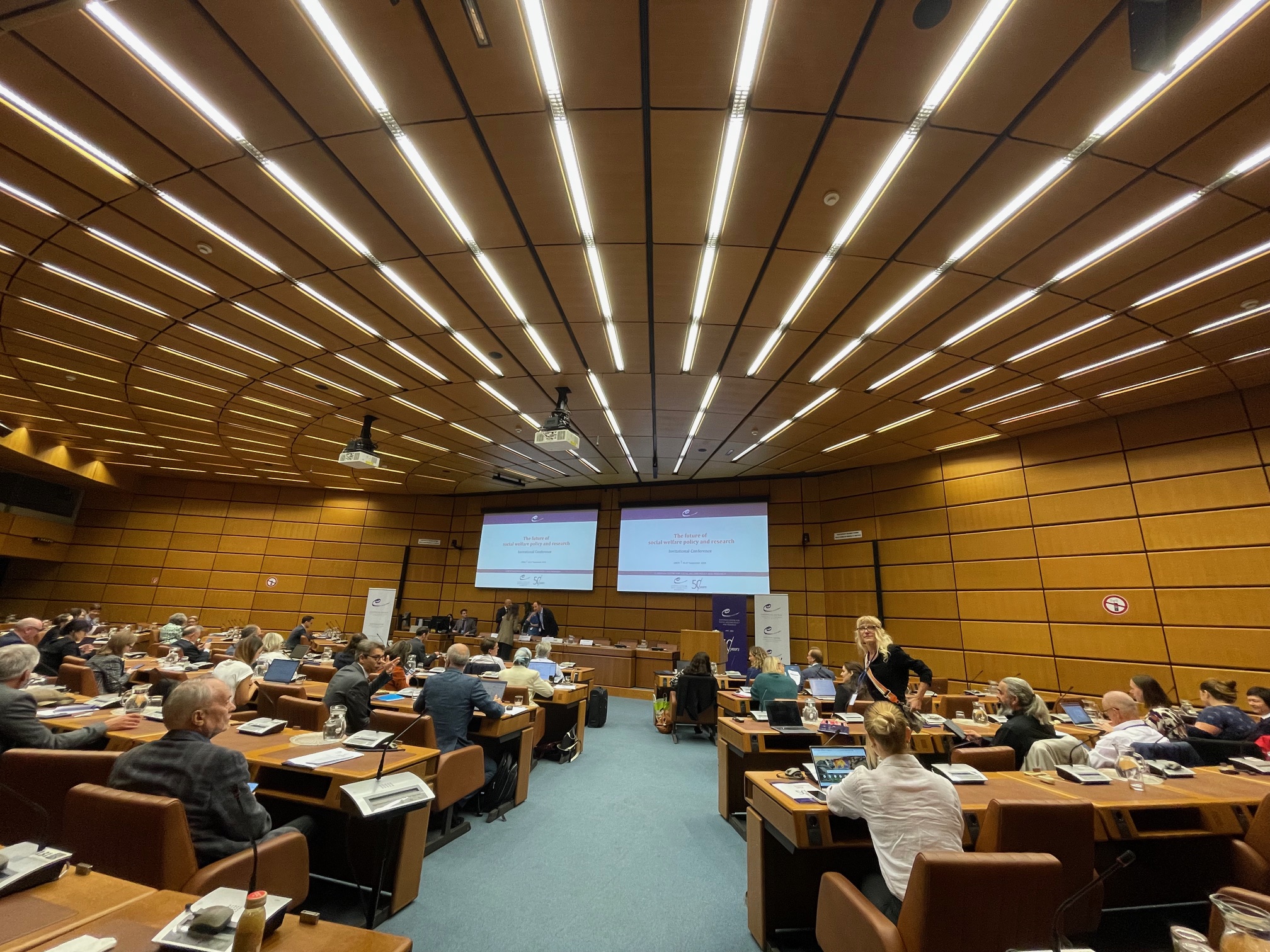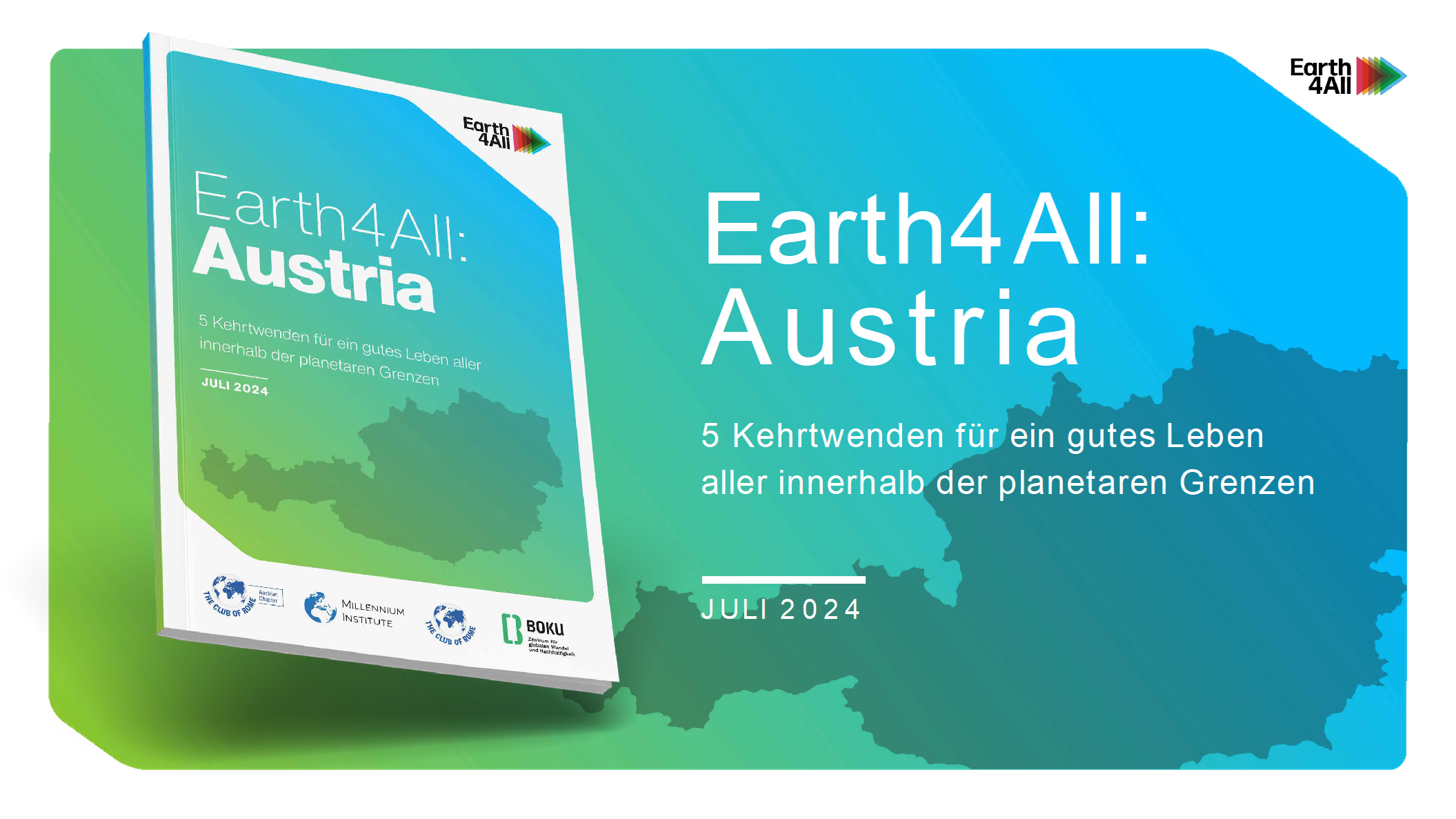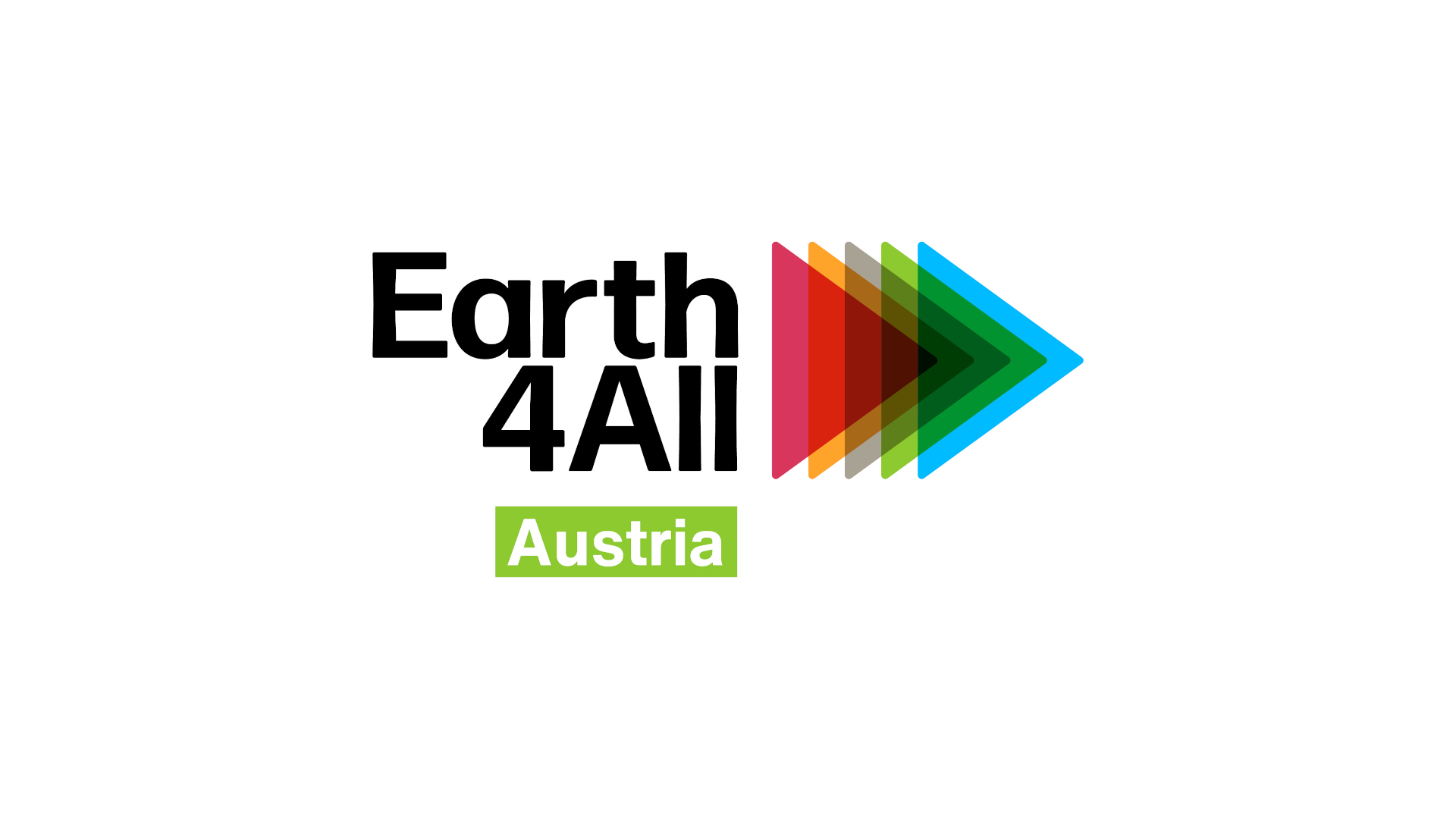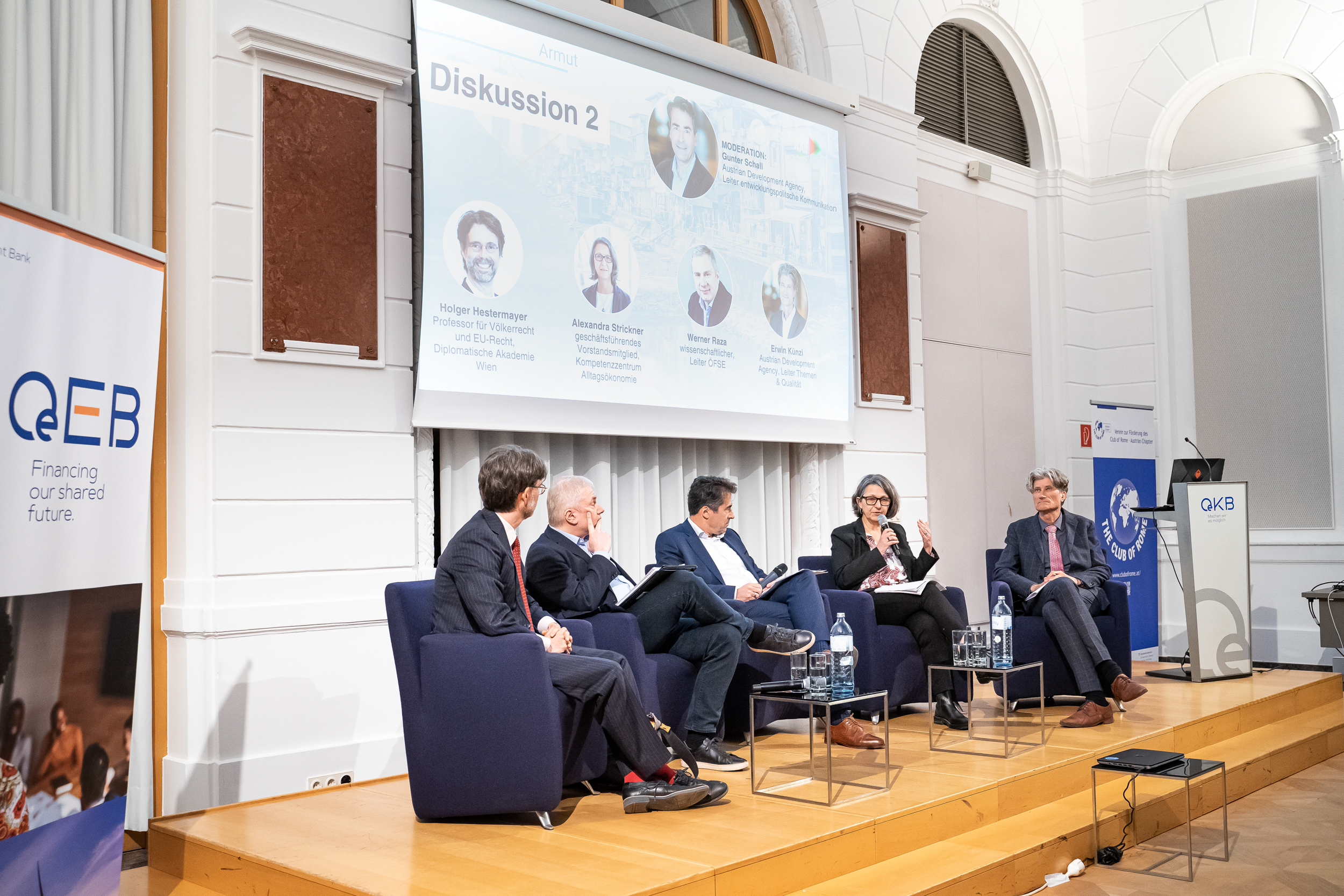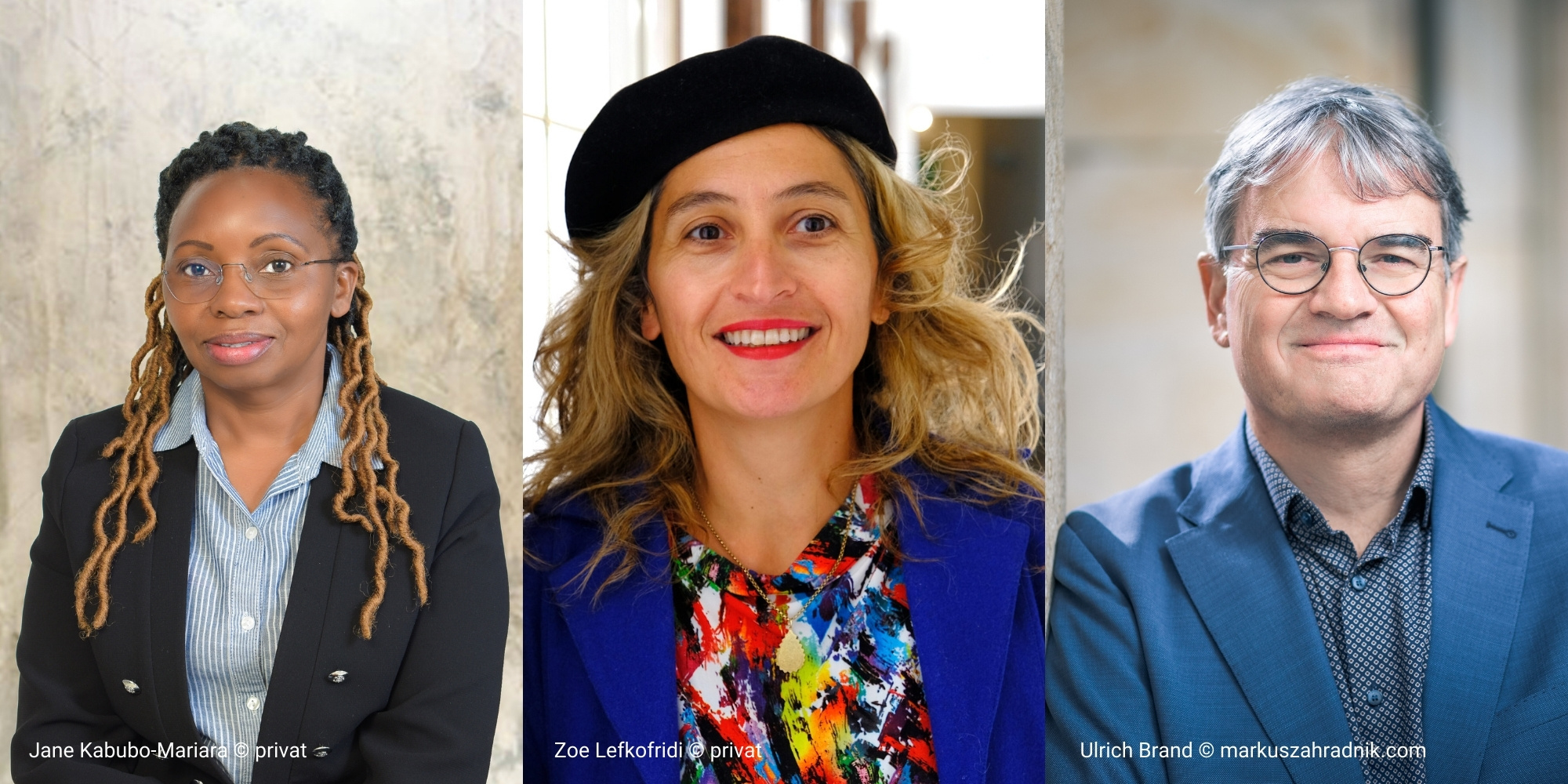Since the first publishing of “The Limits to Growth”, the Club of Rome has become synonymous with forward-thinking and scientifically rigorous policy advocacy. Building on this legacy, the Earth4All Initiative – created by the Club of Rome – published another report in September 2022 entitled “Earth4All: A Survival Guide for our Planet”.
The report further expands on the concepts defined in “The Limits to Growth” and further discusses two different scenarios based on current scientific research:
- Too Little too late – business as usual, We continue on the same path as the last 40 years.
- Decisive action is taken in the form of a “giant leap.” A comprehensive plan for a sustainable global society at the end of this century.
The Austrian Chapter of the Club of Rome in collaboration with the PEP Network in Kenya, will fight for the implementation of policies recommended by Earth4All. We will take up this vision and help to ensure that the 5 turnarounds described in the report (see below) together with the 15 proposed measures can be discussed at a national level.
Report “Earth4All Austria”
A major transformation towards the “Giant Leap” can only happen together and we are very much looking forward to (further) discussing this with you.
We would therefore like to revise the report again in the fall. Please feel free to send your comments to office@clubofrome.at.
Earth4All Modelling for Austria
For national modeling, Earth4All relies on the internationally established iSDG model of the Millennium Institute. This system dynamics model has its roots in the World3 model, which formed the basis for the 1972 publication “The Limits to Growth” by Meadows et al.
The iSDG model of the Millennium Institute (Millennium Institute | Policy Impact Analysis (millennium-institute.org)) integrates 30 sectors, 10 in the ecological (green), 10 in the social (red), and 10 in the economic (blue) areas, as illustrated in the figure. These sectors encompass the dynamics within each sector and between sectors, captured in over 3,000 variables and equations. This allows the model to cover a variety of indicators relevant for assessing sustainable future scenarios (e.g., SDGs). The iSDG model is based on the scientifically grounded, proven, and tested Threshold 21 model (T21) (Barney, 2002). Various versions of the model have been used in over 40 countries worldwide for integrated national planning, with all applications focusing on sustainable development that promotes well-being within planetary boundaries (Allen et al., 2016; Pedercini et al., 2020; Millennium Institute, 2023a). Further details and model documentation can be found here:
https://isdgdoc.millennium-institute.org/en/docs/0103-general-characteristics


Since the model covers all dimensions of sustainable development (including the 17 SDGs), it supports a better understanding of the interconnections between multiple goals, as required in the Earth4All context. Additionally, potential synergies and trade-offs can be evaluated and analyzed. This also enables a consistency check of the scenarios. It is essential to illustrate how individual variables behave over time and in relation to each other. The focus is on demonstrating the dynamics and emerging trends rather than making exact predictions.
The 5 Turnarounds
We are currently updating the information on the turnarounds:
Website posts about Earth4All
-
Earth4All at LCOY: Workshops on Policies for Change
On October 12, 2024, the Club of Rome – Austrian Chapter, in collaboration with the international Earth4All Initiative, hosted two exciting workshops as part of LCOY 2024.
-
Global Responsibility and Personal Freedoms
When discussing climate protection and social justice, both private and global dimensions come into play.
-
Meike Bukowski at “The future of social welfare policy and research” conference
On 26.09.2024, Meike Bukowski, Turnaround Lead „Inequality“ of the Austrian Chapter’s Earth4All Austria project spoke at the 50th Anniversary of the “European Centre for Social Welfare … Read More ›
-
Our Event on Earth4All Austria
On July 8, we presented the Earth4All Austria report at the Vienna Climate Biennale together with artists and our special guests Leonore Gewessler and Anders Wijkman.
-
Post-event report Turnaround Poverty April 2, 2024: Panel discussions
Part 2 of our follow-up report on the event on poverty turnaround on April 2, 2024: There is an urgent need for action on sustainable solutions to the debt issue and the economic-ecological-social transition in low-income countries. The complex topics were illuminated in two discussion rounds with various experts.
-
From gender equality & education to empowerment in a very broad sense
Our speakers and panelists next Friday promise an event with numerous different perspectives on the topic of empowerment. The focus will be on more stable societies, gender equality in leadership positions and a new conceptualization of education as well as diverse social power relations.
